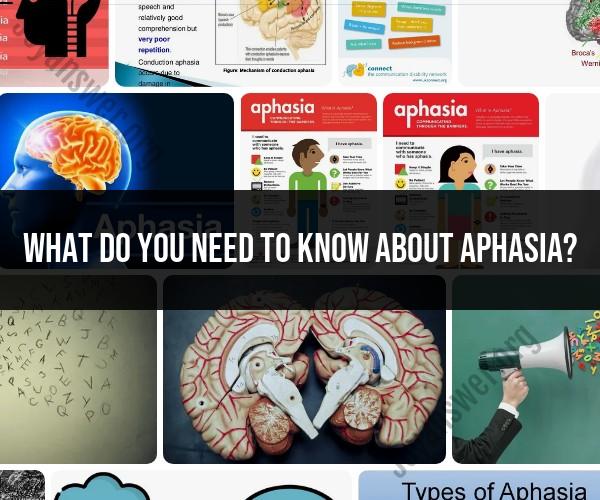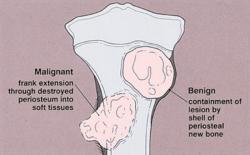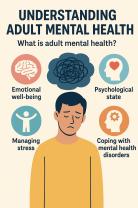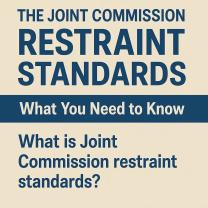What do you need to know about aphasia?
Aphasia is a communication disorder that affects a person's ability to use and understand language. It is typically caused by damage to the areas of the brain responsible for language, often resulting from a stroke, traumatic brain injury, or other neurological conditions. Here are key points to understand about aphasia:
Definition:
- Aphasia is a disorder that impairs the ability to produce or comprehend language. It can affect speaking, listening, reading, and writing.
Causes:
- Stroke: The most common cause of aphasia is a stroke, which can lead to damage in the brain's language centers.
- Traumatic Brain Injury (TBI): Head injuries or trauma to the brain can result in aphasia.
- Brain Tumor: Aphasia can occur if a tumor affects language areas in the brain.
- Infections and Diseases: Certain infections or neurodegenerative diseases can also lead to aphasia.
Types of Aphasia:
- Broca's Aphasia: Difficulty in forming grammatically correct sentences and speech output may be slow and effortful.
- Wernicke's Aphasia: Impaired comprehension and fluent but nonsensical speech.
- Global Aphasia: Severe impairment of language skills, affecting all aspects of communication.
- Anomic Aphasia: Difficulty finding and retrieving the right words, particularly nouns.
- Conduction Aphasia: Difficulty repeating phrases and connecting speech and comprehension.
Symptoms:
- Difficulty Speaking: Individuals with aphasia may have trouble finding the right words, forming sentences, or speaking fluently.
- Difficulty Understanding: Comprehension of spoken or written language may be impaired.
- Reading and Writing Challenges: Difficulty reading and writing, including problems with spelling and grammar.
Severity Varies:
- Aphasia can range from mild to severe. In some cases, individuals may have difficulty with specific aspects of language, while others may struggle with all language skills.
Multimodal Communication:
- Many individuals with aphasia adopt various communication strategies, including gestures, facial expressions, and other nonverbal cues, to supplement language.
Rehabilitation:
- Speech-language therapy is a crucial component of aphasia rehabilitation. Therapists work with individuals to improve language skills, using exercises tailored to their specific needs.
Impact on Daily Life:
- Aphasia can significantly impact a person's social interactions, relationships, and overall quality of life. Support from family, friends, and caregivers is essential.
Ongoing Recovery:
- Recovery from aphasia is often an ongoing process. Improvement may continue over time, especially with consistent therapy and support.
Individualized Treatment:
- Treatment plans are highly individualized, taking into account the type and severity of aphasia, as well as the individual's goals and needs.
Understanding aphasia involves recognizing its various forms, causes, and the significant impact it can have on communication and daily life. Supportive environments, ongoing therapy, and a multimodal approach to communication can contribute to better outcomes for individuals with aphasia.
Defining Aphasia
Aphasia is a language disorder that results from damage to one or more of the language areas in the brain, typically located in the left hemisphere. This damage can disrupt the ability to understand or produce spoken or written language, affecting communication in various ways.
Causes of Aphasia
The most common cause of aphasia is a stroke, which occurs when blood flow to the brain is interrupted or reduced. Other potential causes include:
- Traumatic brain injury (TBI)
- Brain tumors
- Progressive neurological diseases like Alzheimer's disease or dementia
- Infections of the brain
Symptoms of Aphasia
The specific symptoms of aphasia vary depending on the type and severity of brain damage. However, some common symptoms include:
Difficulty understanding spoken language: Individuals with aphasia may struggle to comprehend words, phrases, or sentences in conversation.
Problems with word-finding: They may have trouble finding the right words to express themselves, resulting in pauses, hesitations, or incomplete sentences.
Challenges with producing speech sounds: Speech production may be slurred, slow, or difficult to articulate.
Impaired writing and reading: Writing and reading abilities may also be affected, with difficulties in spelling, grammar, and comprehension.
Types of Aphasia
There are three main types of aphasia:
Broca's aphasia: This type is characterized by non-fluent speech, with short, effortful phrases and difficulty finding words. Comprehension may be relatively intact.
Wernicke's aphasia: This type is characterized by fluent but meaningless speech, with long, rambling sentences that lack coherence. Comprehension may be impaired.
Global aphasia: This is the most severe type of aphasia, affecting all aspects of language production and comprehension.
Assessing Aphasia
A comprehensive assessment of aphasia is crucial for determining the type, severity, and impact on communication. This assessment typically involves:
Speech-language pathology evaluation: A speech-language pathologist will assess language abilities, including speech production, comprehension, writing, and reading.
Neurological examination: A neurologist will evaluate overall neurological function and identify any potential causes of aphasia, such as a stroke or brain tumor.
Treatment for Aphasia
The primary treatment for aphasia is speech-language therapy (SLT). SLT aims to improve language skills and communication abilities through various techniques, such as:
Verbal-auditory therapy: This focuses on improving speech production and comprehension through drills, exercises, and practice.
Visual-gestural therapy: This utilizes gestures and sign language to supplement speech production and enhance communication.
Augmentative and alternative communication (AAC): AAC tools, such as communication boards or electronic devices, can provide alternative means of communication for individuals with severe aphasia.
Prognosis for Individuals with Aphasia
The prognosis for individuals with aphasia varies depending on the type, severity, and cause of the underlying brain damage. However, with appropriate speech-language therapy and rehabilitation efforts, significant improvements in communication are often possible.
In conclusion, aphasia is a complex language disorder that can significantly impact communication. Understanding the causes, symptoms, and types of aphasia is essential for providing effective assessment, treatment, and support for individuals with this condition.











